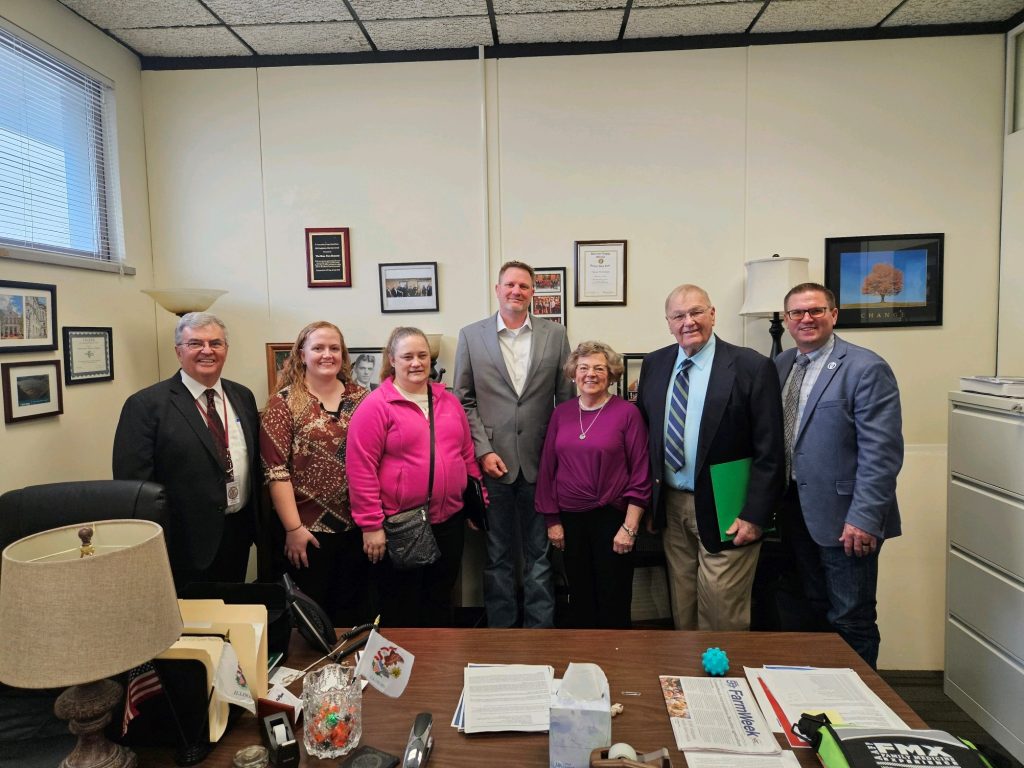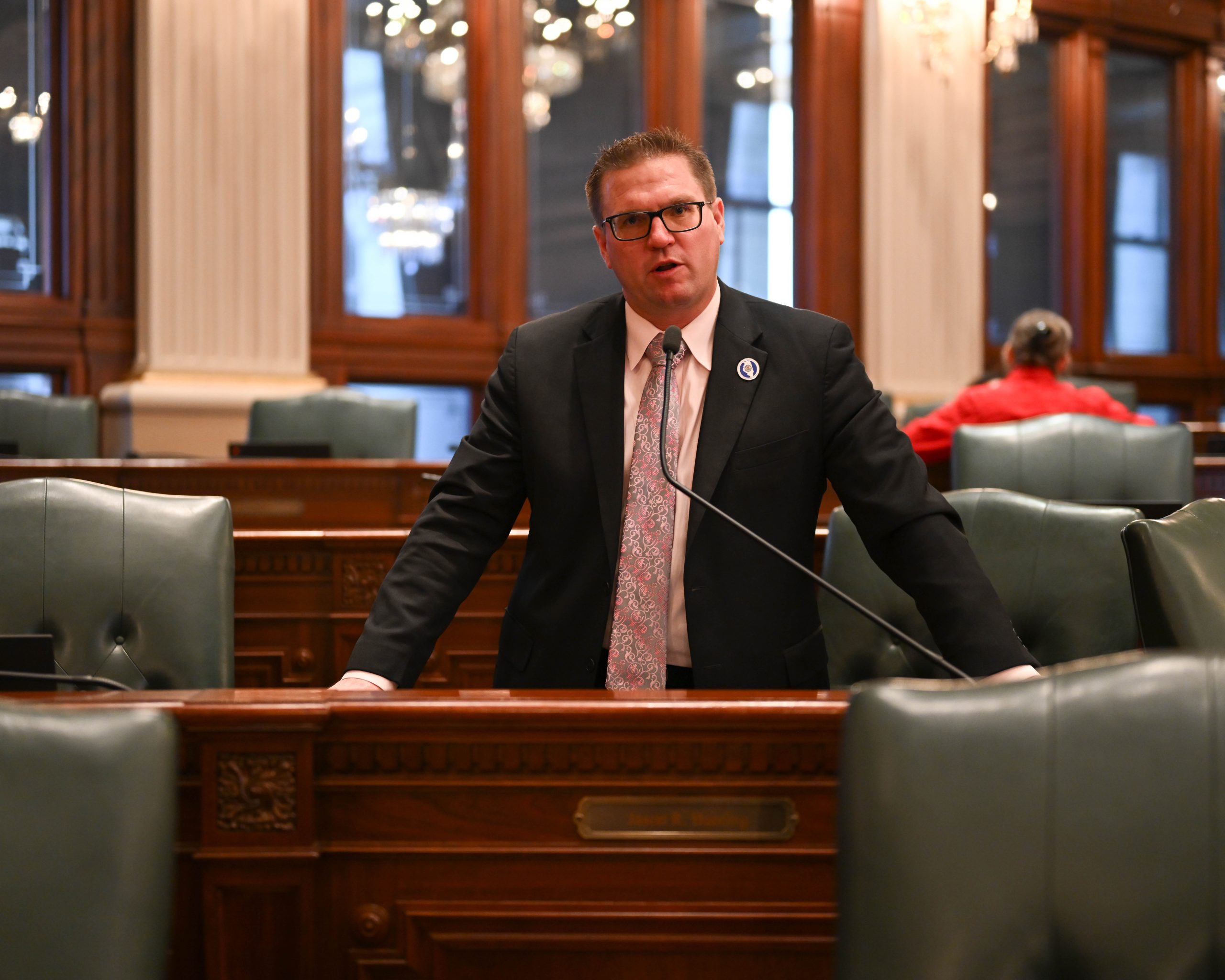In this issue:
- Grocery tax cut needs to be offset to avoid harm to local governments
- Illinois unemployment rate steadies at 4.7%
- Grundy County students at the Capitol
- Promoting soil health
Grocery tax cut needs to be offset to avoid harm to local governments
During his State of the State address Governor Pritzker proposed to increase state spending while raising taxes. He also suggested removing the state’s 1% tax on groceries.
On the surface this seems like a good idea, but the devil is in the details. We have all seen skyrocketing inflation drive up our grocery bills, so anything that would reduce that burden even a little bit would help.
But while grocery tax funds are collected by the state, they do not remain there. They go to local municipalities to fund their vital services. Removing this revenue from cities and villages would blow a hole in their budgets which they would have to figure out how to fill. They would be forced to cut services or raise taxes. Neither is a solid choice.
If the Governor is serious about eliminating the grocery tax, he should be willing to make up the difference to our local governments by replacing the lost revenue. Since 2011 the state has decreased by almost 40% the amount of revenue it shares with municipalities, something called the Local Government Distributive Fund.
This week I signed on as the co-sponsor of a bill, HB 4061, to restore these cuts which were made to funding for local governments.
Restoring these cuts and reducing the harm caused to our local governments is the only way to make a grocery tax cut work without causing undue pain at the local level. I hope the Governor will be willing to do so.
Illinois unemployment rate steadies at 4.7%
The unemployment rate in Illinois held steady at 4.7% in January, a decline of a tenth of a percentage point from December. The latest figures were released by the Department of Employment Security.
There were big shifts both upward and downward across different parts of the state’s economy. More than 22,000 jobs were created in the educational and health care sector, and another 22,000 were added in government. But the state saw a decline of 40,000 jobs in professional and business services, and we lost 8100 jobs in the information sector. In total the state had 6600 fewer jobs in January 2024 than in January 2023.
Nationwide the unemployment rate stands at 3.7%, a full percentage point ahead of Illinois. All five of our neighboring states posted better unemployment rates than Illinois: Indiana (3.5%), Iowa (3.0%), Kentucky (4.3%), Missouri (3.3%) and Wisconsin (3.4%).
Grundy County students at the Capitol

This has been a very busy time in Springfield and I have met with so many wonderful people.
I was walking through the Capitol a few days ago and saw some familiar faces. Deb Eungard, who was recently awarded the Illinois ACTE Teacher of the Year Award, and her students from the Grundy Area Vocational Center spoke with me about their class experience! I enjoyed our visit.
Thank you for coming to Springfield!
Promoting soil health

Many advocacy groups were in Springfield last week promoting Soil Health Week. I was honored to speak at the Advocacy in Action Rally at the Capitol on Thursday about the Soil and Water Conservation District legislation that I sponsored last year.
Thank you to State Senator Thomas M. Bennett, Sarah Earles (Ford County SWCD), Becky Taylor (Livingston County SWCD), Kenny Hawthorne (Board Chairman Ford County SWCD), and my wonderful parents Lee and Marie Bunting (Livingston County SWCD) for stopping by my office and for all that you do for the Soil and Water Conservation Districts in the 106th!
Our current bill backlog
When a vendor provides the state with goods and services, they submit the bill to the Illinois Comptroller for payment. The Comptroller processes the paperwork and pays the bill when funds are available in the state’s checking account. Currently the total amount of unpaid bills is $1,977,025,525. This figure changes daily. Last year at this time the state had $2.2 billion in bills awaiting payment. This only includes bills submitted to the Comptroller for payment, not unfunded debts like the state’s pension liability, which is well over $100 billion.
Illinois headlines
House Republicans fighting for protection for human trafficking victims
Illinois businesses brace for potential tax increase
Increase in fraud-related losses in Illinois
Former Illinois Senator Terry Link gets probation in corruption case
When should I plant veggies in Illinois? Illinois Extension offers planting guide
